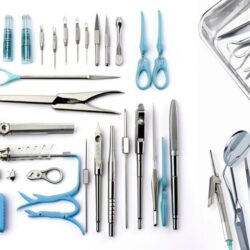In a world where food is more accessible than ever, it’s ironic that nutritional deficiencies are on the rise. From energy drinks to meal replacement bars, our diets are filled with convenience but often lacking in the essentials our bodies truly need. The “Deficiency Epidemic” is not about a lack of calories, but a lack of nutrients. Despite living in an era of abundance, millions suffer silently from the consequences of nutrient-poor diets, unaware that the modern way of eating is no longer meeting our body’s basic biological requirements.
The Hidden Crisis Behind Modern Food
Supermarkets today are stocked with thousands of options colorful packaging, quick meals, and ready-to-eat snacks. But behind this abundance lies a quiet problem: nutrient depletion. Modern agriculture focuses heavily on quantity rather than quality. Over-farming, soil depletion, and chemical fertilizers have stripped the earth of vital minerals, meaning that even “fresh” fruits and vegetables often contain fewer nutrients than they did decades ago.
A landmark study from the University of Texas found that between 1950 and 1999, levels of calcium, phosphorus, iron, and vitamin C in 43 different crops had significantly declined. This means that eating a bowl of spinach today may not deliver the same nutritional value your grandparents once received.
The Convenience Trap
The shift toward processed and fast food has changed not only how we eat but what we eat. Processed foods are engineered for taste and shelf life, not nutrition. They often replace natural vitamins and minerals with synthetic additives that don’t function as effectively in the body.
Consider the average modern diet: breakfast might be a sugary cereal or coffee, lunch a sandwich with white bread, and dinner a takeout meal. It’s filling but not nourishing. These foods are typically low in fiber, magnesium, potassium, and vitamin D, while being high in sodium and unhealthy fats. Over time, this imbalance contributes to fatigue, weakened immunity, hormonal disruption, and even mental health issues.
Technology and the Nutrition Gap
Ironically, while technology has advanced nearly every aspect of our lives, it has widened the gap between us and real food. Refrigeration, long-distance transport, and mass food production allow food to travel thousands of miles before reaching our plates. But every day in transit, vitamins like vitamin C and B-complex begin to degrade.
Even food labeled as “fresh” can lose up to 50% of its nutrients by the time it’s consumed. In essence, the longer food waits on a shelf or in a warehouse, the less nutrition it offers leaving us eating more, yet nourishing less.
The Lifestyle Factor: Busy Lives, Poor Choices
Modern lifestyles make matters worse. Most people skip meals, eat on the go, or rely on caffeine and sugar for quick energy boosts. The result is a body constantly running on empty. When stress levels rise as they often do in our fast-paced world — the demand for certain nutrients like vitamin B5, magnesium, and vitamin C increases dramatically.
Yet, the very foods we reach for during stressful times (chips, soda, instant noodles) further deplete these same nutrients. It’s a vicious cycle one that slowly erodes energy, mood, and long-term health.
Why Supplements Alone Can’t Fix It
In response to the deficiency epidemic, the supplement industry has exploded into a multibillion-dollar market. While supplements can help, they’re not a perfect solution. Nutrients in food work synergistically meaning they interact with each other in complex ways that isolated pills cannot replicate.
For instance, vitamin D helps the body absorb calcium, but it also requires magnesium to activate. Similarly, vitamin C enhances iron absorption. Without this natural coordination, taking supplements in isolation often leads to imbalances or poor absorption.
That’s why nutritionists emphasize “food first” eating a balanced, whole-food diet rich in diverse nutrients before relying on supplements. However, given the modern challenges of food production, supplementation can still play a supportive role when used wisely and under professional guidance.
The Deficiency Symptoms You Might Be Ignoring
Most nutrient deficiencies develop slowly and are easy to overlook. Common warning signs include:
- Constant fatigue or low energy
- Hair loss or brittle nails
- Frequent colds due to weakened immunity
- Brain fog or difficulty concentrating
- Muscle cramps or joint pain
- Mood swings or anxiety
These aren’t just random health issues they’re the body’s distress signals. A simple blood test can help detect underlying deficiencies early, allowing for dietary adjustments or medical guidance before they become chronic problems.
Rebuilding a Nutrient-Rich Lifestyle
Fixing the deficiency epidemic starts with awareness and small, practical changes:
- Eat closer to the source: Choose locally grown, seasonal produce whenever possible. Shorter transport means fresher, more nutrient-dense food.
- Diversify your diet: Rotate your fruits, vegetables, grains, and protein sources. A colourful plate often means a more complete nutrient profile.
- Limit processed foods: The fewer ingredients on a label, the better. Whole foods don’t need marketing.
- Stay hydrated: Water aids digestion and nutrient absorption a simple yet overlooked key to better nutrition.
- Get tested regularly: Understanding your body’s nutrient levels through lab tests can guide smarter dietary choices.
Get your nutritional health report at Dr. Essa Laboratory
The Future of Eating Right
The modern diet isn’t inherently doomed, but it does need rethinking. With advances in nutrition science and digital health monitoring, people can now track deficiencies, personalise diets, and use technology to eat smarter. Healthtech tools and online diagnostics are bridging the gap between awareness and action, empowering individuals to restore balance in their bodies.
Ultimately, the deficiency epidemic is a wake-up call. It reminds us that eating enough is not the same as eating right. In a world full of choices, the real power lies in making the ones that nourish, not just fill.


